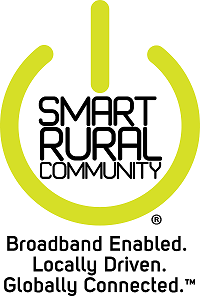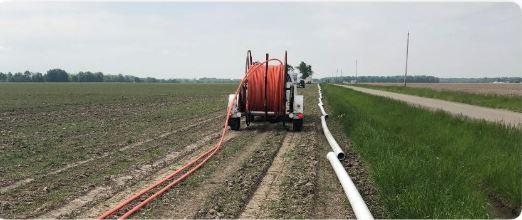By Ashley Spinks, Communications Coordinator, NTCA–The Rural Broadband Association
October 26, 2018
Sometimes creating a fruitful and productive partnership is as simple as asking a question. In Illinois, Wabash Communications Co-Op (Louisville, Ill.) General Manager Barry Adair approached another cooperative, EJ Water, and asked how much they would charge to put fiber in the ground. After some consideration, the chief executive officer of EJ Water, Bill Teichmiller, proposed an alternative to EJ laying fiber: forming a new partnership with Wabash. “It was something he wanted to try to work on together,” said Adair, “so we started talking, got our boards together and … ended up starting an LLC.”
Together, Wabash and EJ founded Illinois Fiber Connect (Louisville), essentially a dual investment into a fiber buildout, which will help bring fiber-to-the-home (FTTH) technology to residents throughout the Midwest. According to Adair, this new partnership will expand Wabash’s footprint by five or six times. “Our service area is getting bigger. [EJ] has got 17,000 members—some of our members overlap, but not many,” Adair explained.
The water utility is directly benefiting from the partnership as well. As a result of the buildout, the co-op will be able to connect its water meters and nearby water treatment plants to fiber, and it will be able to keep more rigorous data on the utility’s operations.
Wabash Communications is an NTCA certified Gig-Capable Provider, and Adair said the company will match these service offerings in all its new territory. In a press release, Teichmiller discussed the impact gigabit internet can have in rural areas. "Broadband is going to make a difference in our rural economy,” Teichmiller said. “The big deal is that it is going to be gigabit, which is super-fast. Many businesses can’t do e-commerce with the kind of speeds they have right now.”
But the benefits of gigabit internet are more than economic. According to Adair, Wabash has delivered fiber to several rural hospitals and schools outside of its footprint, and this new, modern broadband technology has greatly increased the capabilities of these essential anchor institutions.
The schools that have fiber connections, Adair said, “are able to do a 1-to-1 on the Chromebooks now, [which they couldn’t] before because they were on copper.” What this means is that at these rural Illinois schools, each student is able to use a Wi-Fi-connected Chromebook computer during the school day. Gigabit connections can help improve educational services and opportunities in rural areas by supporting these anchor institutions.
Partnerships between rural broadband providers and other local stakeholders—often electric cooperatives or municipalities—are becoming more common and can strengthen rural communities. A partnership between an NTCA member and a water utility is unique, but Adair has high hopes for the success of Illinois Fiber Connect. “Illinois Fiber Connect is a great opportunity for our rural underserved customers and for both cooperatives going forward,” Adair said. Illinois Fiber Connect currently has a landing page on its website where people interested in accessing fiber internet can register need. Adair says interest levels will be tracked and broadly speaking, the network will go where the demand calls for it.
In addition to its internet, phone and television services, Illinois Fiber Connect also presents an opportunity to diversify. The company will offer Wabash Watch—home monitoring solutions such as cameras, door and window sensors and key fobs for businesses—and dedicated Ethernet services. Illinois Fiber Connect is the latest chapter in a story of rural providers leveraging partnerships to make robust and affordable broadband more available to their communities.




